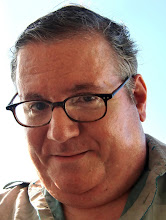When Should Writers Give Up?
 Jeff Vandermeer writes, “I’m deeply upset this morning because of something that happened, really, more than a week ago. Which is to say, a friend who is a published novelist–an excellent writer–basically decided to pack it in.”
Jeff Vandermeer writes, “I’m deeply upset this morning because of something that happened, really, more than a week ago. Which is to say, a friend who is a published novelist–an excellent writer–basically decided to pack it in.”Edward Champion comments, “No, you should not give up at all. No matter how hard it gets. No matter how many setbacks there are.”
I disagree. More in line with my feelings are Bill Peschel, who comments, “My good wishes are for your friend to find something to do with his life that pleases and engages him," and Richard Grayson, who says, “There’s nothing wrong with giving up, either temporarily or permanently. It can be a healthy response.”
The advice you often see when this subject frequently comes up on writers’ blogs, to persevere until your last breath, strikes me as ridiculous and for many writers, especially unpublished writers, potentially harmful.
A writer should quit whenever they feel they’ve had enough. They should quit when the pain outweighs the rewards. There is no point in trying to be a mortal Sisyphus.
Writing is not an obligation. Your writing will never cure a disease or set a broken bone. It won’t keep the streets paved, put food on anyone’s table, keep the electricity flowing, unstop a clogged drain or pick up the garbage on Tuesday. I’m sick of writers using the term “the writing life.’ It tries to elevate an activity that has no social utility and whose product is of importance to a surprisingly small percentage of the population. I’ve never heard any of the many doctors who have treated me proclaim that they’re in the “medical life.” Your writing will most likely never be more important to anyone than it is to you. When the day comes when you realize that writing has ceased to seem important even to yourself, when you feel worse, not better for the effort, then you know it’s time to stop.


0 Comments:
Post a Comment
<< Home